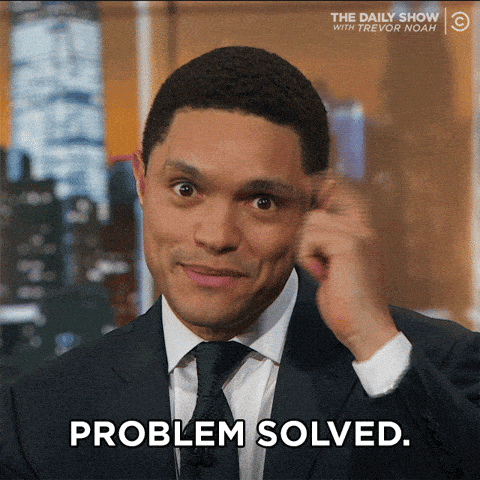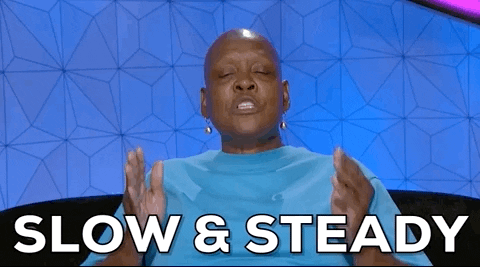- Resilient Reiner Newsletter
- Posts
- The Problem You THINK You Have Is Not the Real Problem
The Problem You THINK You Have Is Not the Real Problem

There it was again: her nemesis the roping chutes. Annie’s horse had developed a habit of spooking at the chutes in the corner of the arena. Every dad-gum circle featured a little spook. Determined to fix it, she approached the issue head-on, walking up to the chutes. Frustration mounted with every unsuccessful attempt. She followed the conventional approach, urging her horse forward, using all her riding skills. But the more she focused on the problem, the tenser both of them became. It wasn't working.
One day, a seasoned rider shared their wisdom. They advised her to shift her focus from eliminating the behavior to assuming confidence. She embarked on relaxed, enjoyable rides, and rode confidently past the chutes. Over time, her horse's trust grew, and the spooking diminished. It taught her that sometimes, rather than confronting a problem directly, a patient and positive approach can lead to better results in the saddle. Because the problem was never the chutes. Her horse wasn’t really scared of the chutes. By forcing the solution to the “problem” she was actually just creating a problem.
It was a powerful lesson. Sometimes, facing riding challenges head-on isn't the best way; patience, trust, and a change in perspective can work wonders.
We all face hurdles in our riding, and these obstacles can often leave us feeling frustrated and disheartened. Many riders believe that the key to success is relentlessly focusing on these problems and putting all their effort into solving them. But is this approach really effective?
The reality is quite different.
If dedicating all your energy to tackling riding issues head-on were a surefire way to success, why do so many of us still struggle with various challenges in the saddle? It's as if our problems seamlessly flow from one ride to the next, like beads of water on a jacket.
Part of the issue lies in our belief that success in riding - like in life - is all about effort and struggle. That nothing comes without hard work, and that pushing ourselves to the limit is the only way to improve. However, to borrow a tech phrase from my husband, “Question The Premise,” or QTP. Is this really true?

Why the Common Problem-Solving Approach Doesn't Always Work in the Saddle
Let's start with an example that every rider can relate to: facing difficulties during a ride. Whether it's a challenge with your horse's behavior or mastering a new riding technique, these issues can bring about anxiety, worry, and stress.
Now, the typical response is to focus all our attention on the problem and seek a solution. But there are two significant problems with this approach:
Anxiety and stress tend to intensify when we obsess over the problem.
Finding a satisfying solution is often elusive.
Think of it this way. My clients often worry about lead changes. They want to do well, and they get more and more anxious. More and more stressed. More and more focused on getting the change. And despite all this worry, they find that elusive lead change seems to get farther and farther away.
Why does this happen? It's because when we fixate on an issue, the negative emotions associated with it grow in intensity. We're essentially stuck in a state of emotional turmoil, desperately trying to escape to a solution.
But here's the thing: as Albert Einstein once said, "We cannot solve our problems with the same thinking we used when we created them." I would add that we cannot solve our riding issues in the same emotional state that we were in when they arose. - Nicole Burnett
The Real Problem in the Saddle
The core issue is not the riding challenge itself but your emotional state while facing it. Consider this: what is the most painful aspect of dealing with a riding problem? It's not just the physical aspect or the technical difficulty; it's the negative emotions such as frustration, fear, and doubt that come with it. Horses can swap leads on their own all day long. It’s everything we bring to the table that complicates it.

In essence, we label something as a problem because it makes us feel bad. Now, imagine for a moment that you could maintain a sense of peace and contentment during your ride, regardless of the challenges. Would you still perceive these challenges as urgent problems?
The truth is, you can experience peace and joy in your riding journey, even without achieving every riding goal you've set. Many riders accumulate material achievements and still find themselves anxious, stressed, and dissatisfied.
The root cause of all problems, whether in riding or life, often boils down to how we feel about them. So, what if changing how you feel could be the key to solving your riding challenges?
An Alternative Approach to Tackling Riding Issues
Instead of pouring all your mental energy into trying to solve riding problems while drowning in negative emotions, consider a different approach:
Shift your focus away from the problem and onto something that brings you joy in riding.
Imagine how you would feel if the problem were magically resolved and embrace that feeling.
Every time you catch yourself slipping back into worry or frustration during your ride, gently redirect your thoughts and emotions towards that positive feeling—whether it's the sense of peace, joy, or accomplishment you aspire to.
I understand this may sound unconventional, but take a moment to reflect on your riding experiences. How long have you been wrestling with the same issues using traditional problem-solving methods? Has the endless pondering and worrying brought you closer to a solution?
Think of it as an experiment in your riding life. Instead of dwelling on problems, make it a priority to feel good during your rides. Recognize that, in this very moment, everything is fine; nothing is inherently wrong. Keep returning to that feeling of peace and contentment that you can tap into at any time.
This approach doesn't mean suppressing your emotions; it's about acknowledging them without allowing them to overwhelm you. After all, worrying while riding is a bit like an addiction. If it's challenging to stop completely, allocate a limited time each day for worrying, but for the rest of the ride, choose to focus on feeling good in the saddle.
Give it a try. What's the worst that can happen? Your riding challenges might persist, but you'll no longer feel burdened by them. It's a win-win.
Balancing Rational Thinking with Riding Bliss
I'm not advocating for abandoning reason or critical thinking. In fact, I believe that rational thinking is crucial, especially in riding. The problem isn't thinking itself; it's the endless, repetitive, emotionally driven thinking that often leads to turmoil.
Effective thinking in riding should be free from the distortions of negative emotions. We often struggle with the same issues because our thinking about those problems is heavily influenced by the emotions tied to them.
So, consider this rational perspective:
Is it more sensible to spend a lifetime worrying and hoping problems will magically disappear, all while missing out on the joys of riding? Or is it wiser to focus on feeling as good as you can right now and build your riding journey around that positive state?
Remember, thinking is a valuable tool, but not all thoughts are created equal. Worrying is a form of thinking that's rooted in negative scenarios and can wreak havoc on your well-being. Worry changes nothing.
The Role of Action in Riding
If you have a riding problem and you know the specific actions to take to address it, by all means, take action. However, consider this: if you were certain that your chosen action would solve the problem, why do you still find yourself facing the same issue?
Here's a thought-provoking idea: while action can solve many riding problems, it may not lead you to a worry-free and fulfilling riding experience.
Think about it. You might work hard and achieve your riding goals, but then what? Does your mind grant you a peaceful ride and let you savor your accomplishments?
Often, it doesn't. Instead, it introduces new worries, such as the fear of losing your progress, doubts about the future, or concerns about external factors. It's like solving one problem only to encounter the next.
If action alone were the ultimate solution, we would have conquered all riding challenges by now. But look around; riders are constantly rushing and struggling, and many seem to make slow progress.
So, here's a novel idea: pause the frantic pace for a moment and ask yourself what you genuinely want from your riding journey.

Choosing Happiness in the Saddle
No matter what you say, deep down, you desire happiness in your riding. It's a universal aspiration for riders, whether they admit it or not. And the key realization is that happiness is attainable now or never.
The stars don’t need to align. You don’t need anything external.
Imagine a scenario where you could be perpetually happy in the saddle, even if you never achieved every material riding dream you thought you needed. You might not get the championship ribbon, the top-tier horse, or the perfect training facility, but you'd experience unwavering happiness.
Whether you think this will help your riding or not, consider this an invitation to invite happiness into your life and riding and see what happens.
Happy Trails,
Reply